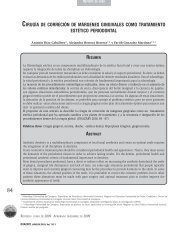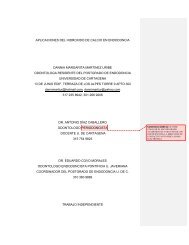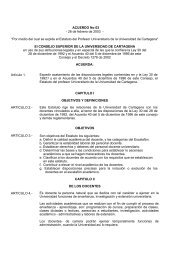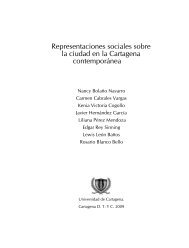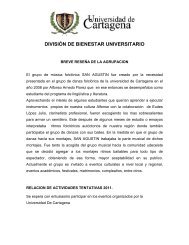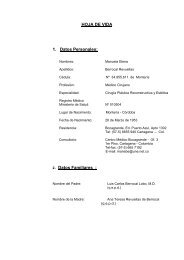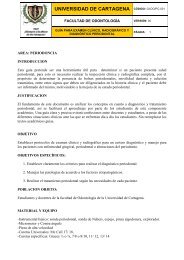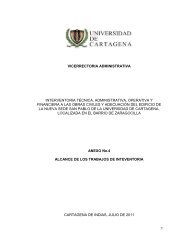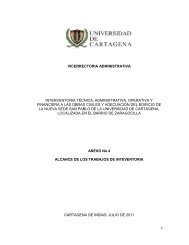inclusión de la moral en el derecho y otros ensayos de teoría jurídica
inclusión de la moral en el derecho y otros ensayos de teoría jurídica
inclusión de la moral en el derecho y otros ensayos de teoría jurídica
Create successful ePaper yourself
Turn your PDF publications into a flip-book with our unique Google optimized e-Paper software.
more important conceptual aspects sets out from its origins; (a) soon is<br />
tried to need of that it consists what has <strong>de</strong>nominated the crisis of the<br />
positivism and the <strong>de</strong>bate that on the occasion of the same provokes<br />
betwe<strong>en</strong> those in favor of the positivism and their critics; finally (b) more<br />
significant critics to c<strong>en</strong>tral theses of the legal positivism are formu<strong>la</strong>ted.<br />
Dev<strong>el</strong>oping the previous thing we will <strong>de</strong>al with to give account of some<br />
of the c<strong>en</strong>tral problems of the mo<strong>de</strong>rn and contemporary thought: the<br />
problem of obedi<strong>en</strong>ce and the validity of the right, the problem of the<br />
discretion and the judicial creation of the right, the problem of the<br />
p<strong>la</strong>nning of the legal positivism and the problem of the inclusion of the<br />
<strong>moral</strong> in the right.<br />
Pa<strong>la</strong>bras C<strong>la</strong>ves<br />
Key word<br />
Positivismo jurídico, discrecionalidad, <strong>moral</strong>, reg<strong>la</strong>s, principios.<br />
Legal positivism, discretion, <strong>moral</strong>, rules, principles.<br />
2.1. El problema <strong>de</strong> <strong>la</strong> obedi<strong>en</strong>cia y <strong>la</strong> vali<strong>de</strong>z <strong>de</strong>l <strong>de</strong>recho<br />
Un aspecto c<strong>en</strong>tral <strong>de</strong> <strong>la</strong> <strong>teoría</strong> positivista es <strong>el</strong> <strong>de</strong> cómo<br />
fundam<strong>en</strong>tar <strong>la</strong> obedi<strong>en</strong>cia <strong>de</strong>l <strong>de</strong>recho <strong>en</strong> algo distinto <strong>de</strong> <strong>la</strong> fuerza<br />
bruta, lo que es posible sólo si se pue<strong>de</strong> distinguir <strong>el</strong> <strong>de</strong>recho <strong>de</strong>l po<strong>de</strong>r.<br />
Con <strong>el</strong> iusnaturalismo <strong>la</strong> obedi<strong>en</strong>cia y <strong>la</strong> vali<strong>de</strong>z <strong>de</strong>l <strong>de</strong>recho estaba<br />
asegurada por refer<strong>en</strong>cia a ciertos valores superiores (razón) o suprahistóricos<br />
(Dios). Al <strong>de</strong>sconectar <strong>el</strong> <strong>de</strong>recho creado históricam<strong>en</strong>te<br />
(positivo) <strong>de</strong> <strong>la</strong> <strong>moral</strong>, <strong>el</strong> positivismo jurídico <strong>de</strong>be hal<strong>la</strong>r fundam<strong>en</strong>to <strong>de</strong><br />
vali<strong>de</strong>z <strong>en</strong> un criterio que ya no pue<strong>de</strong> ser un <strong>de</strong>recho i<strong>de</strong>al (natural),<br />
ni pue<strong>de</strong> ser tampoco un criterio meram<strong>en</strong>te fáctico (<strong>el</strong> po<strong>de</strong>r), sino<br />
jurídico. El positivismo formalista (exégesis francesa y <strong>la</strong> jurispru<strong>de</strong>ncia<br />
<strong>de</strong> conceptos) había resu<strong>el</strong>to <strong>el</strong> asunto ape<strong>la</strong>ndo a <strong>la</strong> noción <strong>de</strong><br />
soberanía <strong>de</strong> <strong>la</strong> ley y a <strong>la</strong> consi<strong>de</strong>ración <strong>de</strong> que <strong>el</strong> <strong>de</strong>recho positivo<br />
no reflejaría <strong>el</strong> capricho y arbitrariedad <strong>de</strong>l po<strong>de</strong>r, sino una voluntad<br />
objetiva y justa 44 que se expresa <strong>en</strong> forma c<strong>la</strong>ra y completa <strong>en</strong> <strong>la</strong> ley, <strong>de</strong><br />
allí que lo mejor es someterse al dictado <strong>de</strong> <strong>la</strong> autoridad soberana. No<br />
obstante, <strong>la</strong>s críticas <strong>de</strong> <strong>la</strong>s concepciones socialistas <strong>de</strong>l <strong>de</strong>recho que<br />
seña<strong>la</strong>n <strong>la</strong> aus<strong>en</strong>cia <strong>de</strong> neutralidad e imparcialidad <strong>de</strong> <strong>la</strong> norma fr<strong>en</strong>te<br />
a los intereses sociales y <strong>la</strong>s re<strong>la</strong>ciones <strong>de</strong> po<strong>de</strong>r y <strong>la</strong>s objeciones<br />
<strong>de</strong> <strong>la</strong>s corri<strong>en</strong>tes sociológicas que seña<strong>la</strong>n no sólo <strong>la</strong> inoperancia y <strong>la</strong><br />
Segura rtega, Manu<strong>el</strong>. La racionalidad <strong>jurídica</strong>. Editorial Tecnos, Madrid, 1998, p.30.



